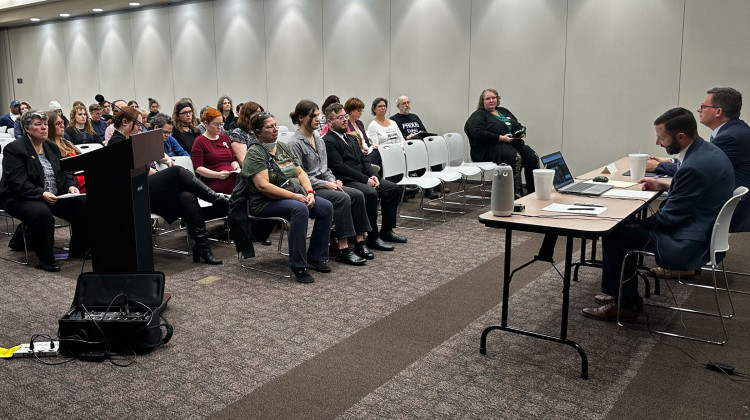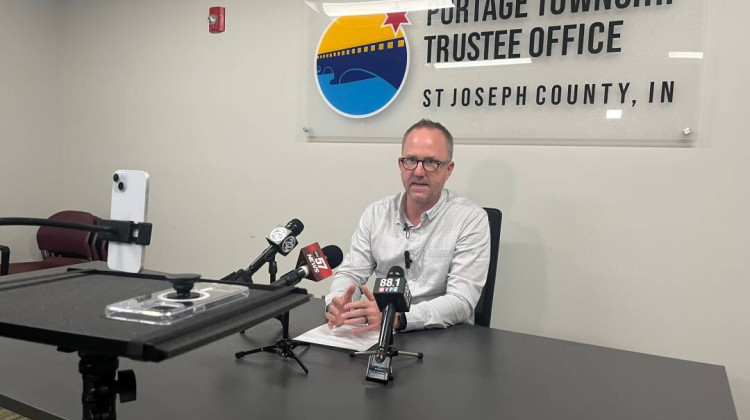INDIANAPOLIS -- Indiana law, unlike many states, allows the courts to involuntarily commit people to a treatment facility for substance abuse, not just psychiatric disorders. But that power is rarely used because of a lack of resources.
The governor’s drug task force explored the issue Tuesday. The options available under Indiana’s involuntary treatment law are immediate detention, which is 24 hours; emergency detention (72 hours); temporary commitment (up to 90 days); and regular commitment, which is more than 90 days. But Family and Social Services Administration attorney Kathy Gregory says those options are less likely to be used for substance abuse issues.
“Because if a police officer has no place to take a person who can sleep there that night, he’s not going to take them to a facility," Gregory said. "He’s going to find a crime, charge a crime and take him to jail.”
Gregory says another issue is that people with substance abuse problems often appear less dangerous after detoxification – and danger is a key prong to qualifying for involuntary commitment. Thus, she says, substance abusers are sometimes released before they really should be.
 DONATE
DONATE





 Support WFYI. We can't do it without you.
Support WFYI. We can't do it without you.